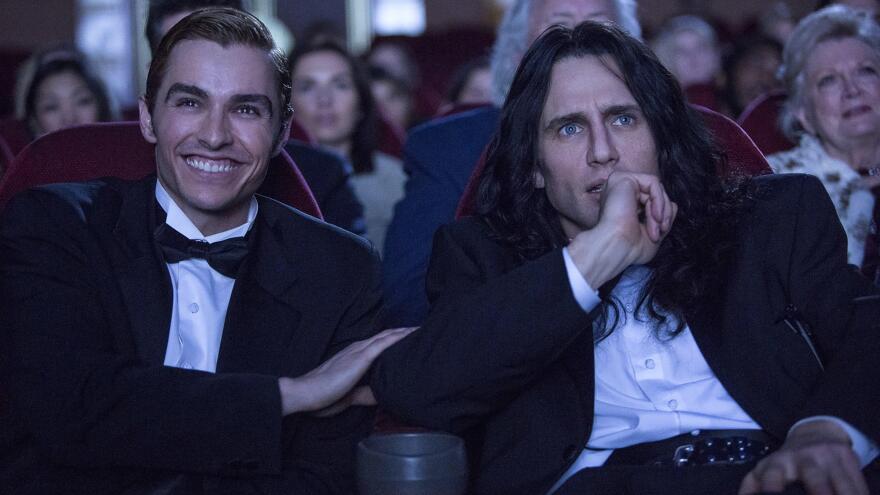I’m not someone who watches bad movies for kicks. I do sort of understand the appeal: There really is a kind of euphoric charge you get from seeing something transcendently awful. It’s just that there are so many good movies I’ve never seen that I just don’t want to spend time on the bad ones.
And so I’ve never seen The Room, widely considered one of the worst movies ever made. It’s the magnum opus of a man named Tommy Wiseau, a man so mysterious that to this day no one knows where he’s from—he claims New Orleans, but his accent and speech patterns suggest something vaguely Eastern European—and nobody knows where he got the millions of dollars it apparently took to make The Room.
I’ve never seen The Room, but I have seen The Disaster Artist, James Franco’s new movie about the making of The Room, based on a book by one of Wiseau’s closest friends, who also had a major role in Wiseau’s film. Franco directs and stars as Tommy Wiseau, who comes into the life of a young aspiring actor named Greg, convinces Greg to move from San Francisco to Los Angeles to pursue an acting career, fails miserably at his own attempt to find acting work, and then decides to write, direct, and star in his own movie, funding the project entirely himself. And from there, we see the genuine disaster The Room is, as Wiseau makes a series of inexplicable decisions behind the camera, all while Franco’s movie lovingly recreates many of the scenes audiences have come to cherish from The Room. And Franco’s done an admirable job—he’s highly entertaining as Wiseau, and he treats the material with as much dignity as I think he can.
But still, a part of me is uncomfortable. I believe Franco and his crew tried to be entirely respectful of Wiseau, but I wonder if the mere act of putting this on screen, even with the best of intentions, still invites us to laugh at this strange man with his funny accent. Is that unavoidable? What’s the inherent value of making a movie like this? It’s a bizarre story, to be sure, and maybe that’s enough of a reason. And I didn’t have a similar reaction to Tim Burton’s glorious Ed Wood, about arguably the greatest of all bad-movie directors.
But I can’t deny my discomfort. Wiseau has supposedly given his blessing to The Disaster Artist, and at least publicly he’s embraced the popularity of his film as a capital-B “bad” movie, but what part of his heart breaks every time he’s laughed at? Or is he so self-deluded that he genuinely believes at this point that it was his intention all along to make a comedy?
The movie doesn’t answer these questions, and I don’t think it can, given Wiseau’s role as a man of ultimate mystery, but for me, these questions are what lingered long after The Disaster Artist was over.


